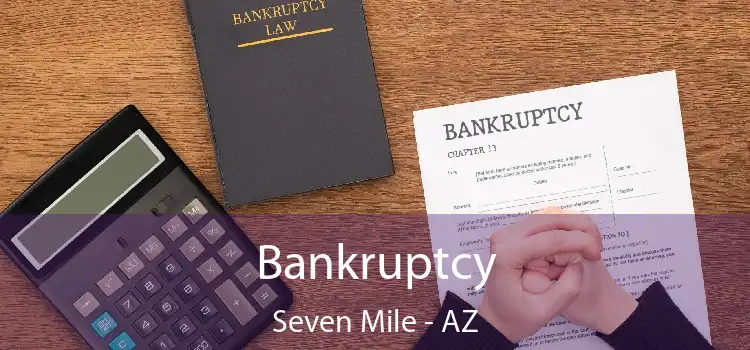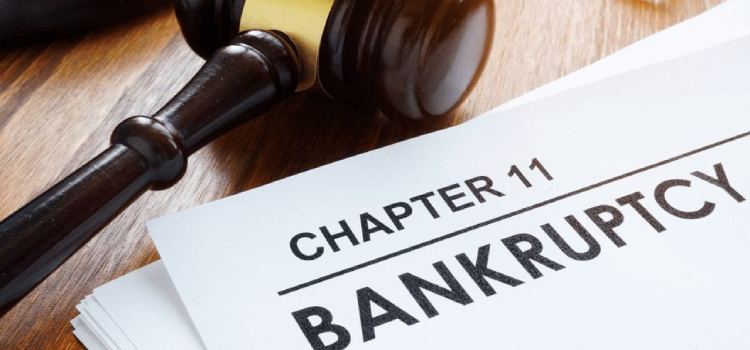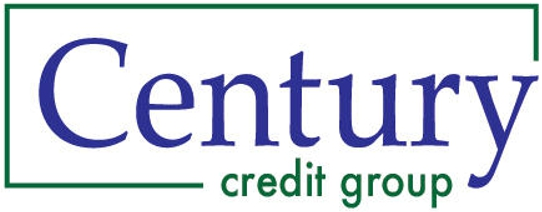-
Phone Number
310-728-9741
Bankruptcy: What You Need to Know
Bankruptcy has been around since the days of Ancient Greece and Rome when debtors were taken captive until they could pay back their loans. Nowadays, it serves as a legal procedure that provides businesses or individuals with the means to get rid of their debts in full.
When you are mired in debt and struggling to make ends meet, bankruptcy can be a lifesaver. It is an invaluable legal option that has been created by the federal government to give individuals and businesses a new beginning. Bankruptcy offers hope for those seeking ways to better manage their finances and take back control of their lives so they can start fresh on solid financial footing.
At Century Credit Processing Group, our team of knowledgeable professionals is here to help you tackle Debt Relief Services such as credit counseling, consolidation, and bankruptcy. We understand the daunting nature of filing for bankruptcy can be confusing and overwhelming - that's why we are available to answer any questions or concerns you may have about the process at 310-728-9741. Our goal is always to find a solution that works best for your individual financial situation so doesn't hesitate in reaching out today!

Who Can Declare Bankruptcy?
If people or businesses can't pay their debts, they may be able to declare bankruptcy. However, individuals must obey specific regulations established by bankruptcy laws – such as completing a means test that verifies if they have enough income to remunerate all of their debtors. By and large, those with low earnings and extensive unsecured credit obligations stand the most chance of achieving success from filing for bankruptcy relief.
As a final resort, companies may choose to declare bankruptcy under different chapters of the federal bankruptcy code depending on their financial status and form. However, before opting for such an extreme measure, it is best if they consider other alternatives such as consolidation or mediation with creditors.
Are All Debts Forgiven When You Declare Bankruptcy?
The type of bankruptcy filing and the debtor's particular circumstances determine what debts may be written off in a bankruptcy. Generally, unsecured debt such as medical bills, Credit Card Payments, and personal loans can typically be absolved through a bankruptcy claim; however, secured debts like mortgages or car finance are not usually terminable unless the collateral is given up by the borrower.
If you have debts such as taxes or student loans, it may be possible to eliminate them during bankruptcy--but only if strict legal requirements are met. To find out which of your debts can potentially be discharged in your particular case, consulting with a bankruptcy attorney is the best option.
Types of Bankruptcy
When it comes to bankruptcy, there are three possible options: Chapter 7, 13, and 11. Each chapter allows for different advantages and obligations based on your financial state of affairs and desired outcomes; you'll need to carefully assess which type is the most suitable for yourself before deciding which one to pursue.
Chapter 7 Bankruptcy
Chapter 7 Bankruptcy, sometimes referred to as liquidation bankruptcy, is the ideal option for those who are unable to pay their debts and lack substantial assets. A trustee will be selected to convert non-exempt possessions into cash that can then be used by creditors. This process provides an opportunity for a fresh financial start while providing some relief from overwhelming debt obligations.
Eligibility:
You need to pass the means test in order to become eligible for Chapter 7 Bankruptcy. In the case you make less than the median salary, you will be instantly qualified for this kind of bankruptcy; however, if it's higher than that amount, then a more thorough assessment must be conducted including an evaluation of both financial resources and expenses.
Process and Timeline:
The whole Chapter 7 bankruptcy process can take anywhere from three to six months, but it all starts with a debtor filing the petition through their local court. Along with that paperwork, they must also supply details on their income sources and expenses, as well as asset and debt information. As soon as this is done, an automatic stay comes into effect - which essentially puts a halt on any collection attempts by creditors until everything has been resolved.
The bankruptcy trustee shall assess the debtor's financial information to identify which assets are exempt from Liquidation. These include a primary residence, car, and personal possessions. Other non-exempt assets will be sold off, with proceeds handed out among creditors.
Pros and Cons:
Chapter 7 bankruptcy is a great option for those looking to rid themselves of unsecured debt such as medical bills and credit card payments. However, it's important to note that the debtor will have to surrender any assets they consider non-exempt. Additionally, their credit report will reflect this filing for ten years afterward.
Chapter 13 Bankruptcy
Chapter 13 bankruptcy can help those with a steady income to restructure their debt, enabling them to pay back creditors in reasonable installments. It is also known as reorganization bankruptcy since it offers individuals the opportunity to create a proposed plan that reflects their personal financial situation.
Eligibility Requirements:
Are you in need of financial assistance and are considering filing for Chapter 13 bankruptcy? Before you can do so, make sure that your regular income is sufficient to cover the amount of unsecured or secured debts owed. Additionally, be aware that a credit counseling class must also be completed prior to submitting a request for Bankruptcy Protection.
Process and Timeline:
Ready to start a new financial chapter? The Chapter 13 bankruptcy process is the perfect way to do that. This typically 3-5 year journey begins when you file your petition and proposed repayment plan with the court while providing important information regarding income, expenses, assets, and debts. As soon as this document is submitted an automatic stay will be enacted immediately halting all creditor collection efforts. With Chapter 13 now in motion you can finally begin taking control of your finances!
The trustee assigned to the bankruptcy case is responsible for verifying that the Repayment Plan proposed by the debtor is viable and making any necessary adjustments. Then, on a monthly basis, payments must be made directly to this individual who will distribute it among those creditors affected by the proposal in accordance with its terms. Finally, once all outstanding unsecured debts have been settled at the completion of said arrangement they shall no longer be held against them.
Pros and Cons:
Chapter 13 bankruptcy offers numerous benefits -- including the ability for debtors to retain their assets while paying off their debts over time, a halt of foreclosure proceedings, and even the opportunity to get caught up on missed mortgage payments. However, those who opt for this form of relief must commit to making monthly repayments toward their payment plan over several years in order for it to be successful.
Chapter 11 Bankruptcy
Bankruptcy under Chapter 11 of the bankruptcy code is specifically tailored to those with overwhelming debt. Referred to as reorganization bankruptcy, it permits the debtor to reshape their obligations and operations in order to attain financial stability.

Eligibility Requirements:
To take advantage of the benefits offered by Chapter 11 Bankruptcy, Debtors must be either a business or persons with an overwhelming amount of debt. Prior to filing for bankruptcy, these individuals are required to participate in credit counseling sessions.
Process and Timeline:
The Chapter 11 bankruptcy process can be complex and lengthy, often taking several years to complete. The process begins when the debtor files a bankruptcy petition with the bankruptcy court, along with a proposed Reorganization Plan. The debtor must also provide information about their income, expenses, assets, and debts. An automatic stay is put in place, which stops all collection efforts by creditors.
The bankruptcy trustee will carefully analyze the proposed reorganization plan and apply any appropriate changes. Then, it is up to the debtor to put these alterations into motion while making consistent payments toward their debt each month. Furthermore, they are allowed to remain in operation throughout this period of restructuring.
Pros and Cons:
Chapter 11 bankruptcy provides businesses and people with a considerable amount of debt the opportunity to restructure their finances, enabling them to become financially viable again. Nevertheless, this process is not always straightforward nor expeditious; it entails prompt payments on behalf of the debtor for an extended period of time.
How Century Credit Group Can Help
Are you or your business in a financial bind? Let Century Credit Processing Group help. We can decide if Chapter 7, 11, or 13 of bankruptcy is the ideal option for resolving your money woes. Plus, we'll prepare the necessary petition and connect you with experienced legal counsel as well as Credit Counseling to assist in rebuilding credit after bankruptcy. Don't let debt drag down your future - take control today with Century Credit Processing Group!
Bankruptcy and Your Credit Score
Declaring bankruptcy is a legal process to either pay off or erase your debts under the protection of certain laws. While this may be able to offer financial freedom, it can also have damaging implications on your credit score. In other words, while you get a chance at starting anew with bankruptcy, it's important to understand that there could be serious consequences as well.
How Bankruptcy Affects Your Credit Score
Filing for bankruptcy has the potential to damage your credit score and hamper any future attempts at securing credit, as its effects can stay on your report for an extended period - up to ten years in some cases. This information is invariably negative and could cause a decline of several points within your existing rating.
In addition, your capacity to acquire a Loan or Credit card may be hindered if you've filed for bankruptcy since lending entities tend to consider you a risky borrower. This makes it difficult for people with such bankruptcy filings to get access to credit and, when they do, the rates of interest are usually higher than usual.
Rebuilding Your Credit After Bankruptcy
Reestablishing credit after bankruptcy may take some time and dedication, but it's not an impossible task. A great place to begin is by creating a budget that enables you to pay off any unpaid debts; this shows creditors that you are taking initiative in bettering your financial standings. To raise your credit score after bankruptcy, a great step is to obtain a secured credit card. This sort of card needs you to put down money as collateral in case you can't afford the payments. When applied judiciously and timely repayments are made, utilizing this kind of card will help reconstruct your credit quickly!
At Century Credit Processing Group, we are dedicated to providing the most effective Credit Repair Services. Our team can assist you in boosting your credit score by recognizing errors on your report, challenging false data, and bargaining with creditors for eliminating unfavorable items from your account. With our help, you’ll be able to receive financial freedom quickly!
Ultimately, bankruptcy can be damaging to your credit score, however, you are able to restore it gradually. With a budget plan in place, by obtaining a secured credit card and with the help of professional services like Century Credit Processing Group repair company, you will have taken the first step towards improving your score and gaining back financial autonomy.
Alternatives to Bankruptcy
Debt Consolidation
Debt consolidation is a debt relief option that involves combining multiple debts into a single payment. A debt consolidation loan can help you pay off your outstanding debts and improve your credit score. With a debt consolidation loan, you can lower your interest rate and have a fixed payment amount each month. This can help you save money in the long run and help you manage your debts more effectively.
Debt Settlement
If financial difficulty has overwhelmed you and bankruptcy seems unavoidable, Debt Settlement could be a viable solution for alleviating your debts. This form of debt relief reduces the amount owed to creditors by negotiating with them; it is particularly conducive to those struggling with credit card debt or medical bills. It's important to note that while settling your debts can provide significant respite, it may affect your credit score adversely - so ensure all other options have been thoroughly explored first!
Credit Counseling
If you're having trouble managing your debts, credit counseling can be an effective solution. A certified credit counselor will work with you to build a budget and repayment plan that fits within your financial reality. The process of talking through your finances can help bring clarity and understanding to the situation, allowing for better decision-making when it comes time to pay off these obligations. With their guidance, you'll be one step closer to getting back on track with debt management.
At Century Credit Processing Group, we recognize that bankruptcy may not be an ideal solution for everyone. That's why we are proud to present a selection of alternative debt relief solutions to help you move forward. Our team of experienced financial advisors will take the time to analyze your current situation and create customized plans tailored specifically for you. Whether it is debt consolidation, credit counseling, or debt settlement services, our specialists can find the best possible answer for your individual case.
Legal Representation in Bankruptcy
Importance of Hiring an Attorney for Bankruptcy Proceedings
Bankruptcy proceedings can be daunting, but having a bankruptcy lawyer on your side will provide much-needed support. An expert in the field of bankruptcy law can guide you through the intricacies of filing and ensure that all legal requirements are taken care of. Moreover, an experienced attorney can help protect your assets while explaining to you what options are available during such a difficult period.
At Century Credit Processing Group, we understand the value of proper Legal Representation for a bankruptcy filing. For that reason, we partner with a vast network of experienced attorneys who are dedicated to guiding you through the process with utmost care and efficiency. Our team can provide you with the most suitable lawyer for your case--one devoted to preserving your rights during proceedings and securing an ideal resolution from start to finish.
Steps for Filing Bankruptcy
Filing for bankruptcy can be a complex and confusing process, with multiple steps to complete. To make it easier on yourself, let's break down each procedure in this article - guaranteeing you a stress-free experience.
Determine the Type of Bankruptcy to File
Knowing which type of bankruptcy you choose to file is essential. Chapter 7 bankruptcy is intended for those who cannot repay their liabilities and have no assets, while Chapter 11 helps with business reorganization. Lastly, if you can keep up with an income flow but need help repaying your debts, then Chapter 13 may be the right fit for you.
Complete Credit Counseling
Prior to petitioning for bankruptcy, you must attend a Credit Counseling Session from an authorized agency. This meeting is designed to aid you in assessing your finances and comprehending solutions other than filing for bankruptcy. Upon concluding the session, you will be granted a certificate of completion.
File Bankruptcy Petition
After you have successfully finished the credit counseling session, filing for bankruptcy is your next step. You must submit all necessary forms to the court, pay a filing fee and provide any other documents as requested.
Attend the Meeting of Creditors
Upon the processing of your bankruptcy, you will be summoned to a meeting with creditors. This is where the Bankruptcy Trustee (whose role it is to vet and verify all information) shall question you about your finances, assets, and debts; requiring sworn answers from you in an oath-taking ceremony.
Complete Bankruptcy Course
Following the creditors' meeting, you must partake in a debtor education course from an authorized organization. This program is designed to educate you on how to wisely manage your finances and Debt Obligations. Upon finishing the seminar, you will receive a certificate that confirms the successful completion of the class.

Receive Discharge of Debts
After you complete the bankruptcy course, all that's left is to await your discharge order. As soon as it arrives and your unsecured debts are absolved, you can start anew by rebuilding your credit status. It is essential for you to bear in mind that not every debt will be exempted from bankruptcy, so it's possible that a few may still need payment from you. So you see, filing for bankruptcy is a complex process that involves several steps. It is crucial to understand the steps involved to ensure a successful bankruptcy filing. If you are confused about how to go about it, you can reach out to us at Century Credit Processing Group. We will file bankruptcy on your behalf and see that it's done properly.
Understanding Bankruptcy and Its Procedures
Considering bankruptcy? Century Credit Processing Group can provide a helping hand and help you understand the process.
When an individual or business files for bankruptcy, creditors are restrained from taking any action against your assets due to an automatic stay being in place - this is followed by filing a plan of reorganization with the court which details how debts will be repaid. After obtaining approval from the court, payments are made through a trustee who disperses them amongst creditors; once all required payments have been satisfied, debts get discharged and the case gets closed!
Starting a Bankruptcy Case
When facing financial hardship and seeking bankruptcy relief, individuals must initiate the process by submitting a petition to the court. This includes providing an extensive list of creditors, a detailed record of assets and liabilities, as well as financial statements. The court then assigns a trustee who is responsible for collecting any non-exempt property belonging to the debtor while also investigating their finances thoroughly.
The Bankruptcy Code provides numerous options for those seeking relief from debt, including Chapter Seven which liquidates assets to pay creditors, and Chapter Thirteen which creates an approved repayment plan by the court. Businesses have access to a special type of bankruptcy as well: Chapter Eleven, which is available for businesses looking to reorganize their operations and develop an Accepted Payment Scheme.
Struggling with bankruptcy law? Century Credit Processing Group has got you covered! Our experienced and knowledgeable team can provide the help you need to get through this tough time. Call us today at 310-728-9741 for a free consultation.
Is it Wise to Hire a Bankruptcy Lawyer?
Filing for bankruptcy is a complicated process, and it's best to have an experienced lawyer by your side. A skilled bankruptcy attorney can evaluate the details of your financial situation, explain all the legal possibilities available to you, and guide you toward the solution that'll be most beneficial in your circumstances. Don't take on this challenge alone--hiring a knowledgeable lawyer will provide invaluable assistance as you navigate through difficult times.
When you Hire a Lawyer, not only do you get expert legal representation in court and assistance filling out the paperwork, but they can also negotiate with creditors to protect your rights. Avoiding costly mistakes is invaluable during bankruptcy proceedings - with their guidance and support throughout the process, you'll have peace of mind knowing that everything will be taken care of properly.
Conclusion
At Century Credit Processing Group, we can help you file for bankruptcy and educate you on what's best for you. So, don't hesitate to call us at 310-728-9741 to book an appointment!
Areas We Serve For Bankruptcy in Arizona
- Naco
- Shongopovi
- Mesa del Caballo
- McNary
- Ak-Chin Village
- Claypool
- Seven Mile
- Golden Shores
- Wagon Wheel
- Cactus Flats
- Mayer
- Bellemont
- Fredonia
- Leupp
- Bouse
- Mammoth
- Mescal
- Bylas
- Moenkopi
- Casa Blanca
- Tubac
- Parks
- Dilkon
- Morenci
- Peach Springs
- Six Shooter Canyon
- Red Lake
- St. David
- Cibecue
- Tonto Basin
- Centennial Park
- Tsaile
- Meadview
- Miami
- LeChee
- Cienega Springs
- Pinetop Country Club
- Grand Canyon Village
- Mountain View Ranches
- Peridot
- Second Mesa
- Spring Valley
- Lukachukai
- First Mesa
- Congress
- Pine
- Pirtleville
- Canyon Day
- Dolan Springs
- Gila Bend
- Quartzsite
- Kaibab Estates West
- Kaibito
- Scenic
- North Fork
- Blackwater
- Fort Valley
- Huachuca City
- Joseph City
- Beaver Dam
- Springerville
- Kearny
- Window Rock
- Sells
- Heber-Overgaard
- Bagdad
- Rio Verde
- Star Valley
- Black Canyon City
- Sacaton
- Linden
- Desert Hills
- Central Heights-Midland City
- Timberline-Fernwood
- Swift Trail Junction
- Superior
- Wellton
- Whetstone
- Colorado City
- Valle Vista
- Pima
- White Mountain Lake
- Cordes Lakes
- Kachina Village
- Ajo
- Mohave Valley
- Williams
- Willcox
- Parker
- Oracle
- Red Rock CDP
- St. Johns city
- San Manuel
- Cornville
- Carefree
- Fort Defiance
- Avenue B and C
- Chinle
- Lake of the Woods
- Clifton
- Taylor
- Pinetop-Lakeside
- Whiteriver
- Dewey-Humboldt
- Lake Montezuma
- Clarkdale
- San Carlos
- Eagar
- Paulden
- South Tucson
- Three Points
- Holbrook
- Cave Creek
- Bisbee
- Summit
- Doney Park
- Thatcher
- Kayenta
- Benson
- Rincon Valley
- Guadalupe
- Citrus Park
- Williamson
- Avra Valley
- Snowflake
- Village of Oak Creek (Big Park)
- Catalina
- Litchfield Park
- Youngtown
- Tolleson
- Globe
- Wickenburg
- Page
- Golden Valley
- Tuba City
- Arizona City
- Winslow
- Picture Rocks
- Corona de Tucson
- Sedona
- Safford
- Gold Canyon
- Saddlebrooke
- Tucson Mountains
- Show Low
- Camp Verde
- Cottonwood city
- Tucson Estates
- Verde Village
- Paradise Valley
- Chino Valley
- New Kingman-Butler
- Valencia West
- Coolidge
- Sun Lakes
- Somerton
- Vail
- Sierra Vista Southeast
- Tanque Verde
- Eloy
- Fort Mohave
- Payson
- Douglas
- Flowing Wells
- New River
- Nogales
- Green Valley
- Rio Rico
- Anthem
- Fountain Hills
- Florence
- Sun City West
- Fortuna Foothills
- Drexel Heights
- Kingman
- Sahuarita
- San Luis
- El Mirage
- Sun City
- Apache Junction
- Bullhead City
- Sierra Vista
- Prescott
- Prescott Valley
- Oro Valley
- Catalina Foothills
- Marana
- Casa Grande
- Lake Havasu City
- Maricopa
- Queen Creek
- Casas Adobes
- Flagstaff
- Avondale
- Buckeye
- Goodyear
- Yuma
- San Tan Valley
- Surprise
- Tempe
- Peoria
- Scottsdale
- Glendale
- Gilbert
- Chandler
- Mesa
- Tucson
- Phoenix
